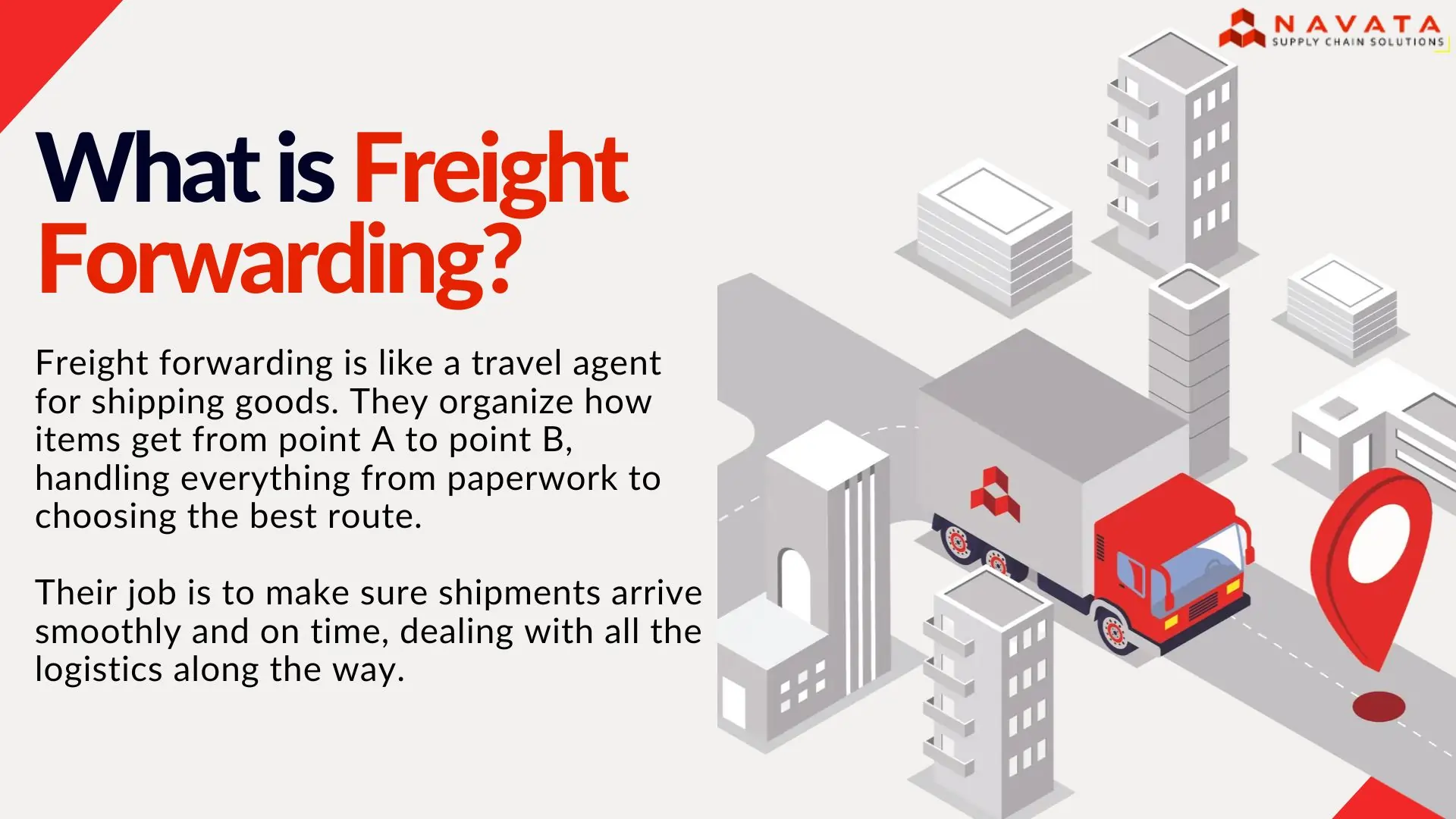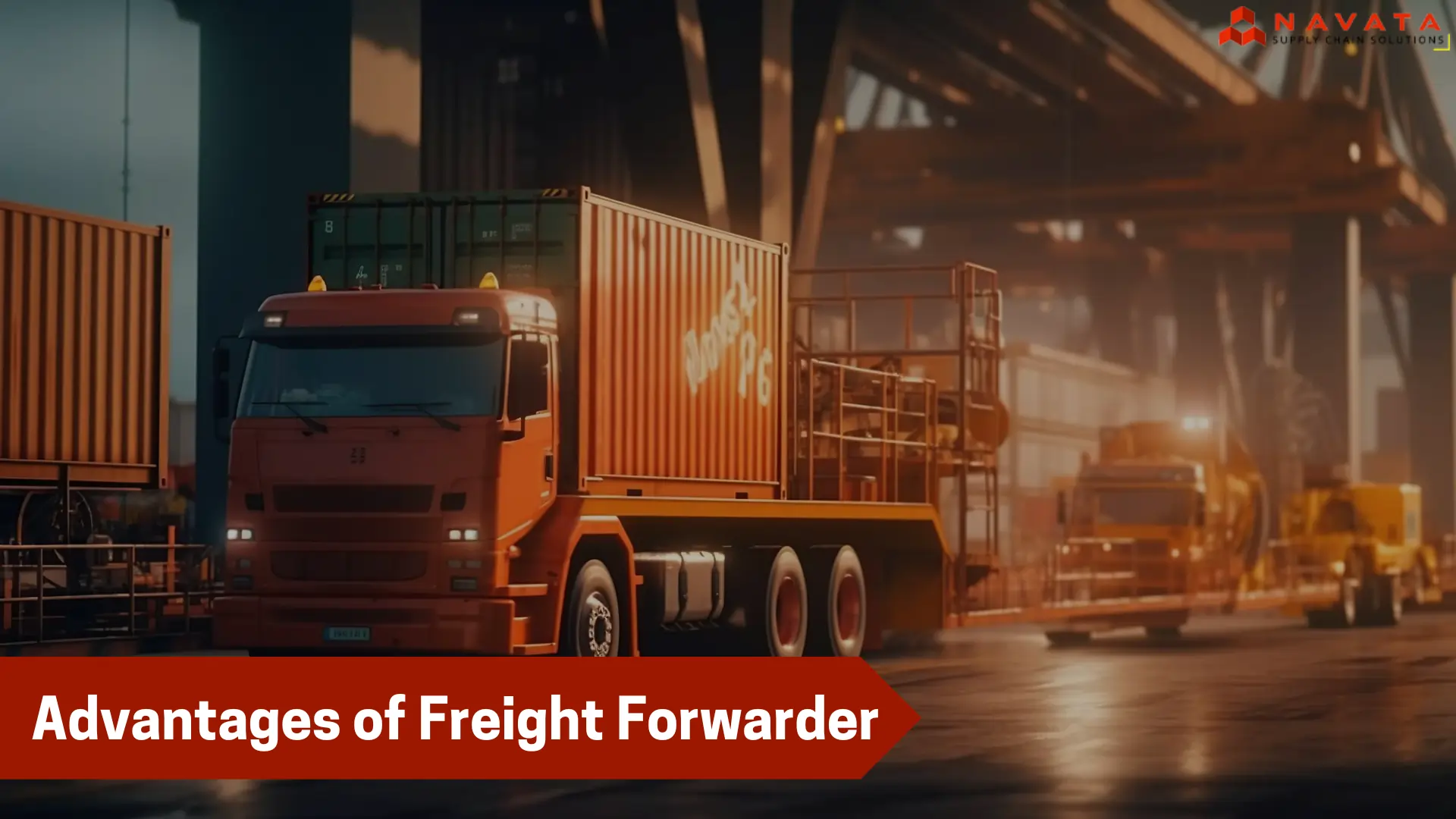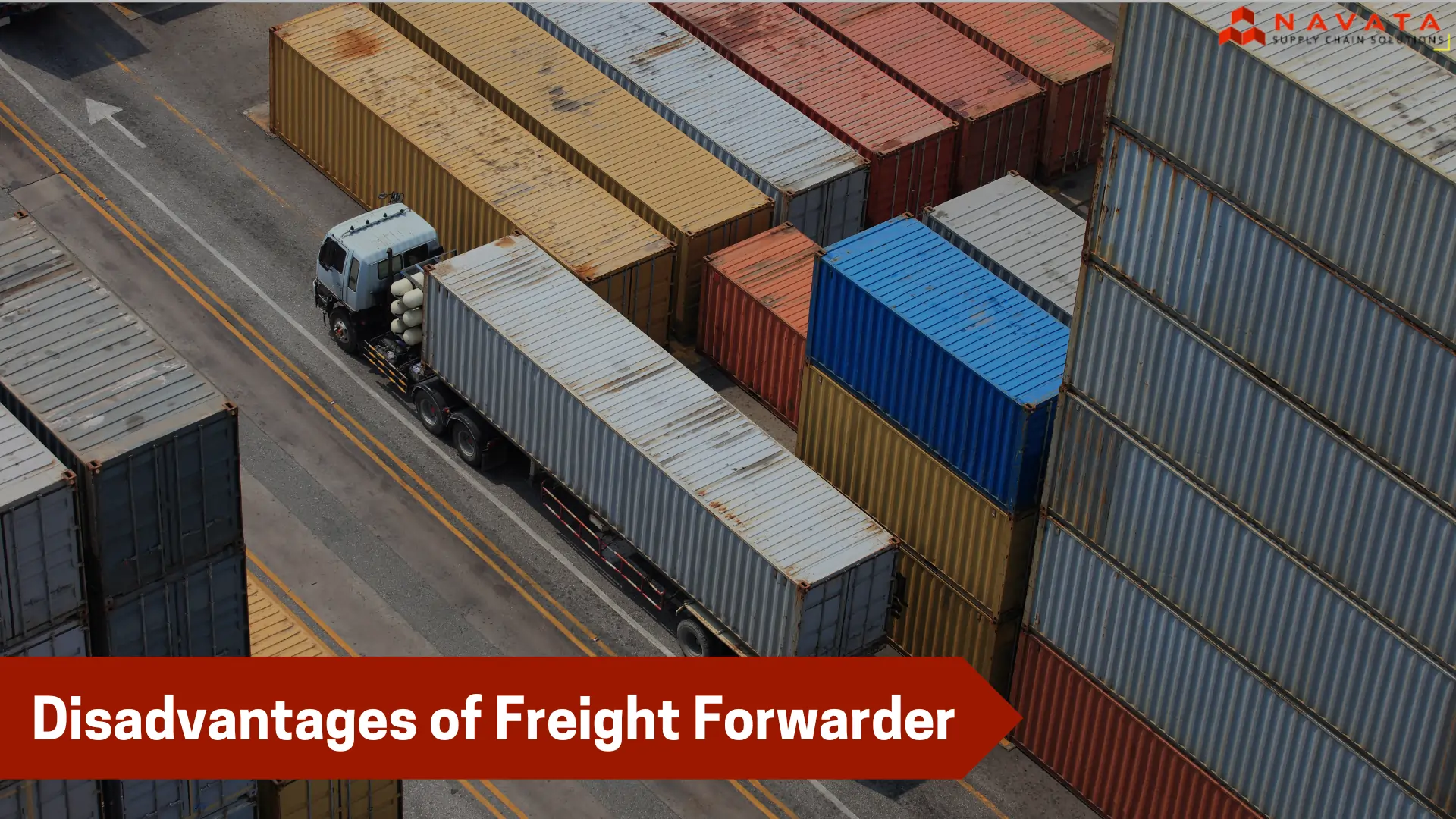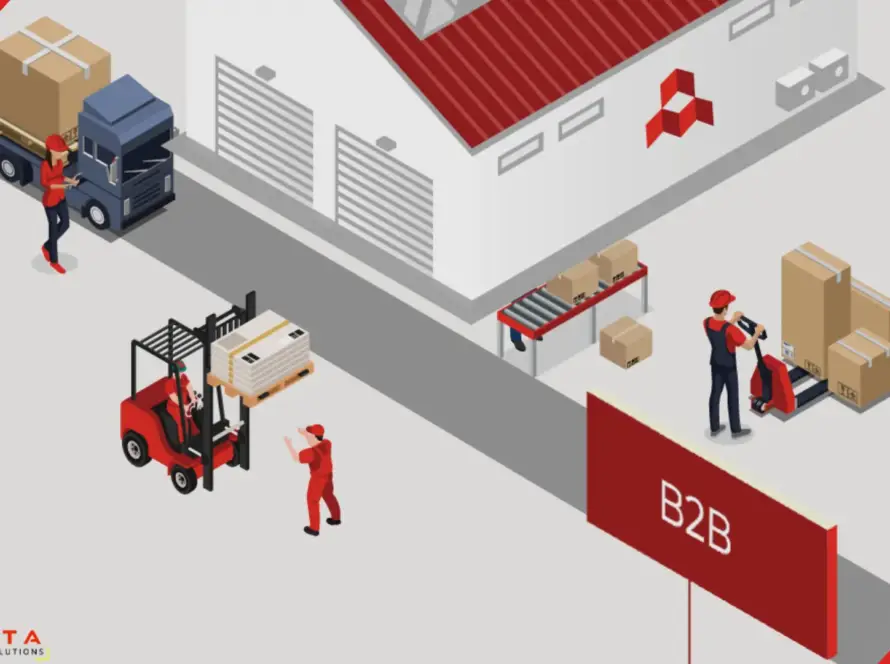In the field of logistics, freight forwarding is crucial to the movement of commercial goods. Bulk commercial commodities transportation can be very challenging. It is an expensive and time-consuming procedure. Nonetheless, freight forwarders can help businesses simply meet their shipping needs by optimizing the supply chain and freight logistics procedures.
Their extensive experience, technology, network, and resources enable them to assist enterprises in worldwide transportation and expansion while reducing costs and time. This article will discuss freight forwarding, including its varieties, advantages, and important phases. It will also explain how freight forwarding works in logistics.
What Is Freight Forwarding?
In logistics, freight forwarding is the process by which third-party organizations, commonly referred to as freight forwarding companies, transfer a manufacturer’s cargo from its point of origin to its intended destination using one or more carriers and a variety of transportation means, such as air, sea, land, or rail.
The logistics term “freight forwarding” refers to the collection, delivery, and handling of cargo as well as any related complex procedures. Government controls are frequently applied to freight forwarding companies in order to guarantee that the rules are upheld and followed.
The types of cargo that can be transported and the quantity of cargo that can be transported simultaneously are within the control of freight forwarding businesses. They are also in charge of various tasks such tracking, documentation and insurance, licensing, custom brokerages, warehousing, fare negotiations, and much more. With their knowledge and aptitude for addressing problems, these businesses turn freight logistics into a highly profitable and safe endeavor. There are numerous freight forwarding businesses available. It is up to you, though, to weigh all the options and select the best one for your business travel.

Role of Freight Forwarder
In the freight logistics sector, freight forwarders serve as the representatives of freight companies. Businesses look upon them since they handle all aspects of logistics, from delivery to shipment to storage, all within their purview. In order to provide their clients with an easy and cost-effective means to ship and receive cargo from anywhere in the world, freight forwarders need to establish a large network of contractors, administrative firms, government agencies, and so on. In order to have a realistic expectation of what to expect when addressing freight forwarding in logistics services for your organization, it is imperative that you comprehend the precise role and responsibilities of a freight forwarder.
Documents And Cargo Insurance
Shipping both domestically and internationally, is a complex operation that needs to be carried out with careful paperwork and teamwork. Bills, paperwork from ports, customs clearance, and other documents are a few examples of these documents. It is the responsibility of a freight forwarder to arrange these documents for their customers so they can receive hassle-free logistics services. Additionally, clients of forwarders receive a cargo insurance policy from them, allowing them to receive compensation in the event that the items are lost, stolen, or damaged in transit.
Monitoring Shipments
In logistics, freight forwarding enables clients to enjoy a clear transit experience. For precisely the same reason, freight forwarders set up a Transportation Management System, enabling clients to monitor and follow the progress of their cargo at every turn of the journey.
Combining Shipments
Even with small amounts of material to travel, businesses can save a significant amount of money by using freight forwarders for commercial product transit. Many of the clients that forwarders serve do not always require a full container; in these situations, freight is aggregated for less than the container load, meaning that several small-volume consignments are scheduled in a single container. Several participating customers split the transportation costs among themselves according to how much room they need for the goods in this kind of freight logistics.
Negotiation On The Customer’s Behalf
When shipping by air, sea, rail, or road, freight forwarders act as a middlemen between shippers and freight carriers. Several transport partners across numerous continents, countries, and regions are members of their network. Freight forwarders use this established relationship to assist them provide cost-effective solutions for their customers by mapping out transportation costs and identifying the most cost-effective transit route. Freight forwarders also bargain and bargain with the carriers to secure low-cost shipping rates, keeping in mind all the variables, including the type of goods, space requirements, timeliness, etc.
Storage
Large-scale freight forwarding businesses may have their own warehouses where they keep the products that are scheduled for shipment. These warehouses can hold cargo with unique storage needs, such as temperature control, and are furnished with cutting-edge equipment. Nonetheless, the majority of forwarders provide their clients with services by setting up storage in independently owned third-party warehouses in the area.
Brokering of Customs
Permissions and paperwork are needed for import and export to function properly. Freight forwarders can readily handle these documents, but even they need a special license known as a customs brokerage license. Since the average person cannot obtain these permits, firms must enlist the services of freight forwarders to finish the transportation procedure. The freight forwarding agent is immediately eligible to handle the paperwork needed for transportation as long as they possess an up-to-date customs brokerage license.
Flexibility And Versatility
Customers can expect adaptability and flexibility from freight forwarders. For your shipment, you have a number of options to select from, including modes of transportation. In order to guarantee the safe transportation and prompt arrival of your item, your freight forwarder can also suggest the ideal arrangement.
Import Haulage
The final step of the process is referred to as import haulage by freight forwarders. When the goods leaves the import warehouse and reaches its destination, this phase is completed. Similar to export haulage, freight forwarders might select one or more modes of transportation according to the nature of the cargo and the distance from the warehouse to the final destination. The duration of the import haulage depends on the mileage and manner of transportation, but typically, the recipient receives their product anywhere from a few days to a few hours after it leaves the warehouse.
Boost Productivity: Partner with Freight Forwarding Experts Today!
Types of Freight Forwarding
In logistics, freight forwarding is classified according to the kind of cargo and the manner of transportation. For instance, freight that will travel by sea is referred to as ocean freight. Truck freight is moved across borders using trucks, whereas air freight is moved using airplanes.
Truck Freight Forwarding
In logistics, truck freight forwarding is the most widely utilized mode of transportation for companies, particularly when moving goods across national borders. As the name implies, truck freight delivery uses large trucks or vans to transport cargo over roadways. The delivery itinerary typically ends with road freight. Transportation’s duration and velocity are contingent upon extraneous variables like freeway traffic, gridlock, road upkeep, and so forth. When your goods have reached their destination country and you still want to carry them across multiple states, cities, or provinces, road freight can be a terrific alternative.
Ocean Freight Forwarding
In logistics, the term “ocean freight forwarding” refers to the shipping of products by sea. Huge containers that are loaded onto ocean fleets are used to transport the freight. Transporting extremely heavy cargo to foreign locations is the area of expertise for ocean freight forwarding. Because they are economical and effective, ocean freights are among the most traditional modes of transportation that are still utilized by companies.
With sea freight, you can move large amounts of cargo in a full container load, or FCL, where your consignment occupies the entire space within the container. Another scenario is when your shipment doesn’t need to fill an entire container; in this case, the freight is combined with the cargo of other customers, and the cost of transportation is divided among all parties; this shipping technique is known as Less than Container Loading, or LCL. Both methods enable smooth product transportation at a cost that won’t break the bank.
Air Freight Forwarding
You can send items across greater distances in less time using air freight forwarding. Air freight forwarding is the best alternative for your company if you need to move cargo at a high rate of speed. However, because cargo planes can only handle a specific number of packages at once, there are weight restrictions on some commodities when shipping by air. Hence, air shipments are the best option if your primary logistical need is speed.
You Might Also Like To Read: What Is Reverse Logistics

Advantages of Freight Forwarder
Expertise & Knowledge
Freight forwarders specialize in logistics and have a thorough understanding of shipping operations, laws, and routes. They can handle complex international shipping requirements and offer important guidance on the most efficient and cost-effective shipping options.
Compliance
It makes sense to recruit skilled, experienced forwarding professionals who are knowledgeable about each jurisdiction’s individual requirements as well as the industry as a whole. With the need to meet legal and regulatory standards across many jurisdictions, paperwork, and administration are essential for monitoring compliance throughout the process. Shipping and export documentation, such as bills of lading, incoterms, HS codes, document delivery, letters of credit, and customs declarations, are extremely important. Making a mistake on the documents could result in significant additional costs or even fines.
Cost Savings
Cost savings in freight forwarding can be obtained through strategic moves that take advantage of existing partnerships between freight forwarders and carriers. Freight forwarders can negotiate favorable prices on behalf of their clients by leveraging these ties, which helps to reduce transportation costs. Furthermore, through the consolidation process, freight forwarders can efficiently integrate many cargoes into a single container, optimizing available capacity.
Network & Resources
Freight forwarders play an important part in the logistics chain by utilizing their large network of transportation providers, which includes trucking companies, airlines, ocean carriers, and rail companies. Because of these established contacts, they are skilled in negotiating favorable rates and selecting the best transit modes for your shipment. This extensive network enables them to efficiently manage shipments, ensuring timely delivery while lowering prices for their customers.

Disadvantages of Freight Forwarder
Dependency
Using a freight forwarder for shipping logistics implies entrusting a third-party service provider with the efficient execution of shipping operations. This arrangement implies that firms give up some control over the delivery process. As a result, in the event of any challenges or delays, businesses rely on the forwarder to promptly address and resolve the issues. This reliance emphasizes the need to select a dependable and quick freight forwarder to ensure smooth shipping operations and minimal disruptions to business activity.
Not all freight brokers consistently provide high-quality service. Ethical practices can be inadequate in even the poorest organizations, regardless of their product or service offerings. There are some bad actors in the freight forwarding industry.
Price Gouging
Some forwarders, particularly those without a lengthy history of customer service or a strong set of fundamental principles, are simply aiming to make a profit. Because international shipping can appear so complex to many shippers, freight forwarders may seek to maximize their profits at the expense of their customers. When selecting your own freight forwarder, it is critical that you are an informed consumer. When making your selection, do your research and add different companies to your network.
Limited Control
In the world of shipping logistics, freight forwarders play an important role in handling the complex process of delivering products from one location to another. Despite their critical role, corporations frequently find themselves in a position of restricted control. This implies that, while freight forwarders handle the finer details of transportation, such as coordinating carriers, arranging documentation, and assuring timely delivery, businesses may have limited visibility and control over these processes.
Regulatory Compliance
Freight forwarders must follow a variety of regulations and obligations imposed by national and international agencies, including customs regulations, trade agreements, and transportation legislation. Failure to follow these regulations may result in fines, penalties, or delays in the shipping procedure. Businesses that rely on freight forwarders must ensure that their chosen provider has a proven track record of regulatory compliance to prevent potential legal and logistical concerns.
Conclusion
Freight forwarding is a critical component of the complex global logistics network. It facilitates the movement of commercial commodities across borders and oceans, creating opportunities and challenges for firms negotiating the complexity of international trade. Freight forwarders’ skills and knowledge can help businesses streamline their shipping procedures, manage supply chains, and grow into new markets. However, these benefits are balanced by costs, reliance on third-party providers, and the need to traverse regulatory frameworks. While freight forwarders provide vital services in maintaining documentation, negotiating with carriers, and ensuring compliance, firms must also exercise caution when selecting dependable partners.
Understanding the function of freight forwarders allows organizations to reap the benefits of efficient logistics while avoiding the risks and obstacles associated with global commodities shipping. As businesses change in an increasingly linked world, freight forwarding continues to play a critical role in enabling worldwide growth, efficiency, and profitability.
Thanks For Reading: What Is Freight Forwarding?
Powered By 360Presence
FAQ
What is freight forwarding?
Freight forwarding is the process where third-party companies manage the transportation of cargo from its origin to its destination using multiple carriers and modes of transport, such as air, sea, land, or rail.
Benefits of freight forwarders?
Freight forwarders help businesses by optimizing the supply chain, reducing costs, and saving time.
How do freight forwarders negotiate on behalf of customers?
Freight forwarders use their extensive network of transport partners to negotiate favorable shipping rates and identify cost-effective transit routes, ensuring economical solutions for their clients.
What is truck freight forwarding?
Truck freight forwarding involves transporting cargo over roadways using large trucks or vans, often for cross-border deliveries. It’s a common and flexible mode of transportation, particularly for final delivery stages.
What storage solutions do freight forwarders provide?
Freight forwarders provide storage solutions in their own or third-party warehouses, which are equipped with specialized facilities for particular cargo demands, such as temperature control, to ensure safe storage until shipment.
What is ocean freight forwarding?
Ocean freight forwarding carries commodities across sea in big containers. It is appropriate for large cargo and can be done as Full Container Load (FCL) or Less Than Container Load (LCL), with costs split among many consignments.

